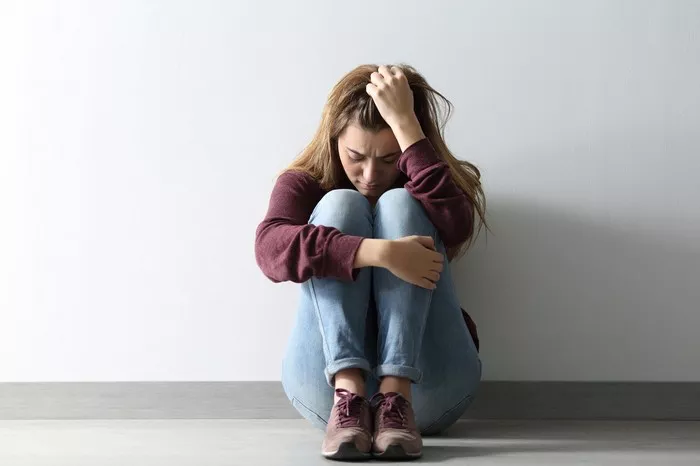Anxiety is a natural response to stress, but when it becomes chronic or overwhelming, it can interfere with daily life. While medication can be helpful, many people seek natural methods to manage their anxiety without pharmaceutical intervention. The good news is there are several proven, drug-free strategies that can make a significant difference. Here are eight effective ways to fight anxiety naturally.
1. Practice Deep Breathing and Mindfulness
Deep breathing is a powerful tool to reduce anxiety instantly. When we’re anxious, we tend to take rapid, shallow breaths, which can exacerbate feelings of panic. Mindful breathing brings your focus to the present moment and helps reset the nervous system.
Try This:
- Inhale slowly for a count of 4.
- Hold your breath for 4 seconds.
- Exhale slowly for a count of 4.
- Repeat for 2–5 minutes.
Pairing breathing exercises with mindfulness meditation can further calm racing thoughts and ground your attention in the here and now.
2. Exercise Regularly
Physical activity is one of the most effective natural remedies for anxiety. Exercise boosts the production of endorphins, the body’s feel-good chemicals, while reducing stress hormones like cortisol.
Best Activities:
- Brisk walking
- Jogging or cycling
- Yoga or Pilates
- Dance or aerobics
Aim for at least 30 minutes of moderate exercise most days of the week to notice a lasting effect.
3. Limit Caffeine and Sugar Intake
Caffeine and sugar are stimulants that can worsen anxiety symptoms. They can cause jitteriness, rapid heartbeat, and heightened nervousness.
Tips:
- Opt for herbal teas like chamomile or peppermint.
- Eat complex carbohydrates for sustained energy.
- Limit processed foods and sugary snacks.
Switching to a balanced diet with more natural, whole foods can also help stabilize your mood and energy levels.
4. Get Enough Sleep
Sleep and anxiety are closely linked. Lack of sleep can amplify anxious thoughts, while anxiety can disrupt sleep. Breaking this cycle is crucial for mental well-being.
Healthy Sleep Habits:
- Stick to a consistent sleep schedule.
- Avoid screens an hour before bedtime.
- Create a relaxing bedtime routine (reading, warm bath, etc.).
Aim for 7–9 hours of quality sleep per night to support overall emotional resilience.
5. Practice Gratitude and Positive Thinking
Chronic anxiety often comes with a pattern of negative thinking. Practicing gratitude and focusing on positive aspects of your life can shift your mindset and reduce anxious tendencies.
How to Start:
- Keep a gratitude journal.
- Write down three things you’re thankful for each day.
- Reframe negative thoughts by challenging their accuracy.
Over time, this practice can build a more optimistic and calm perspective.
6. Try Grounding Techniques
Grounding techniques bring your awareness back to the present and away from anxiety-inducing thoughts.
The 5-4-3-2-1 Method:
- 5 things you can see
- 4 things you can touch
- 3 things you can hear
- 2 things you can smell
- 1 thing you can taste
This sensory-based exercise can interrupt the spiral of anxious thinking and offer a quick reset.
7. Connect with Supportive People
Social support is vital for emotional health. Talking to someone who listens without judgment can make a big difference.
Options:
- Talk to a trusted friend or family member.
- Join a support group.
- Consider professional counseling if anxiety persists.
You don’t have to face anxiety alone—connection is one of the most powerful forms of healing.
8. Engage in Creative Activities
Creative expression is a therapeutic outlet for anxious energy. Engaging in art, music, writing, or crafting helps shift your focus from stress to creation.
Ideas:
- Draw or paint
- Play an instrument
- Write poetry or journal
- Build something with your hands
These activities allow you to express feelings non-verbally and tap into a calming state of flow.
Final Thoughts
Managing anxiety without drugs is both possible and empowering. By incorporating these natural strategies into your daily routine, you can reduce symptoms, build resilience, and improve your overall mental well-being. While these techniques may not eliminate anxiety overnight, consistency is key. Give yourself grace, take small steps, and remember—healing is a journey.
If anxiety persists or worsens, it’s always wise to consult a mental health professional. Natural methods can complement, not replace, professional care when needed.
You Might Be Interested In:

